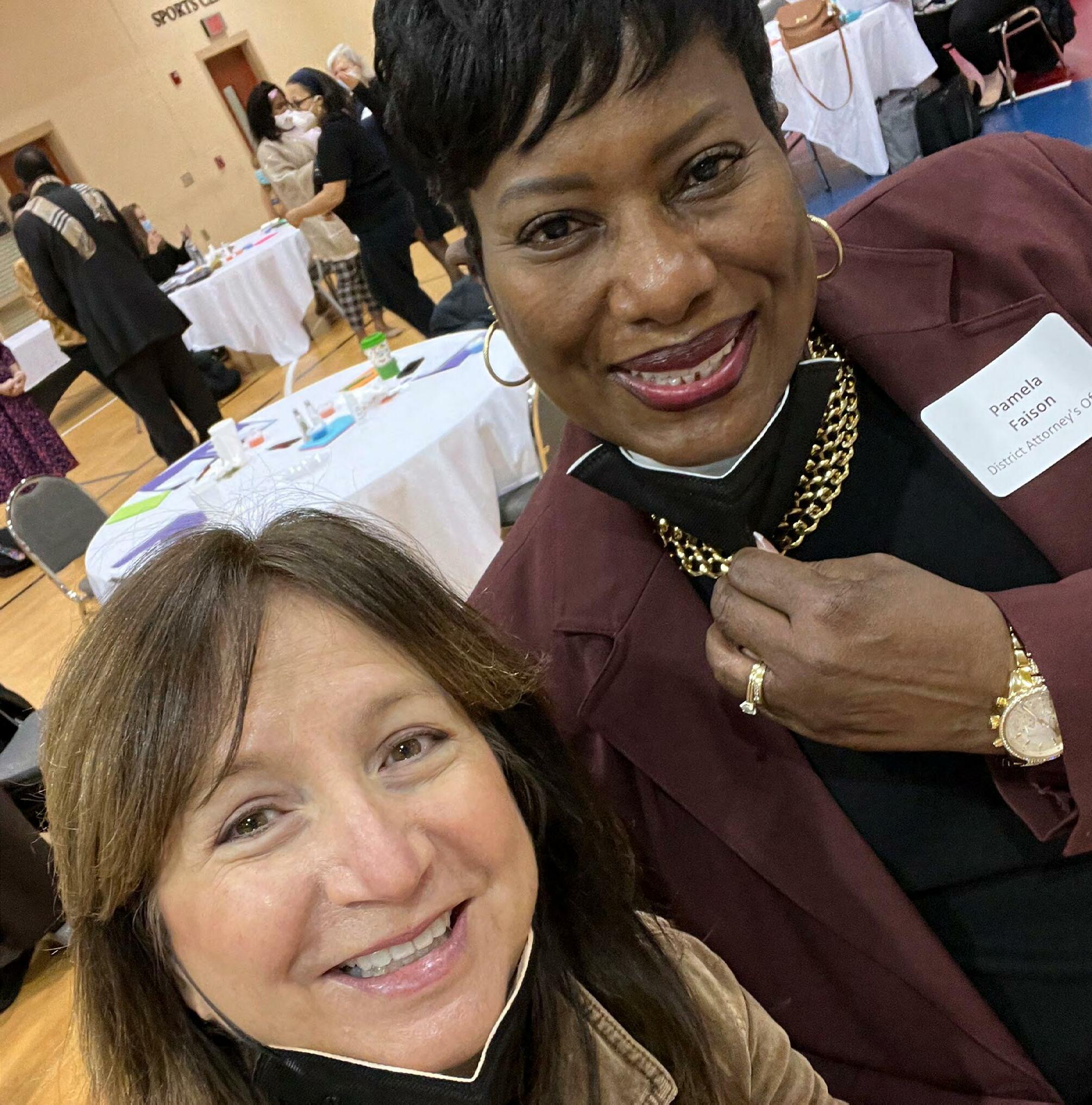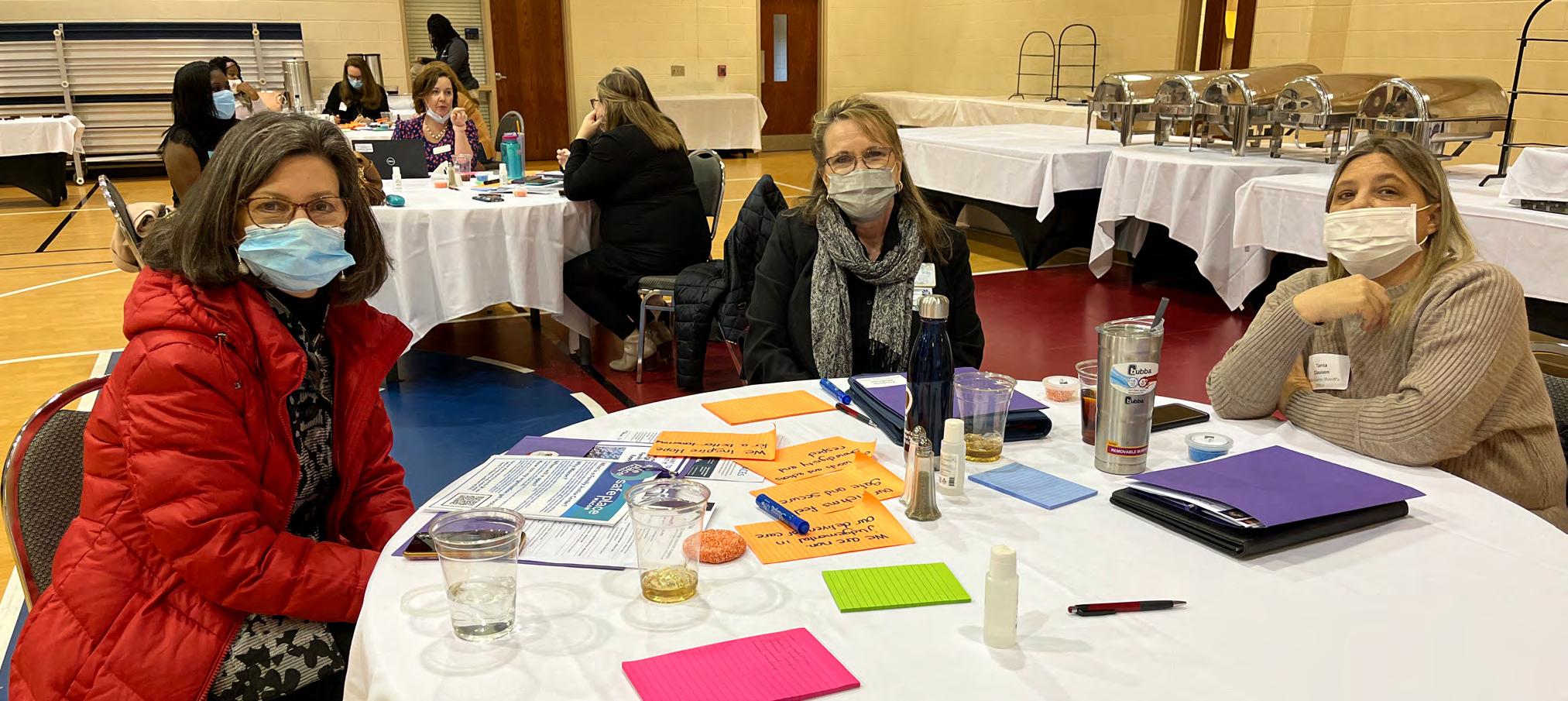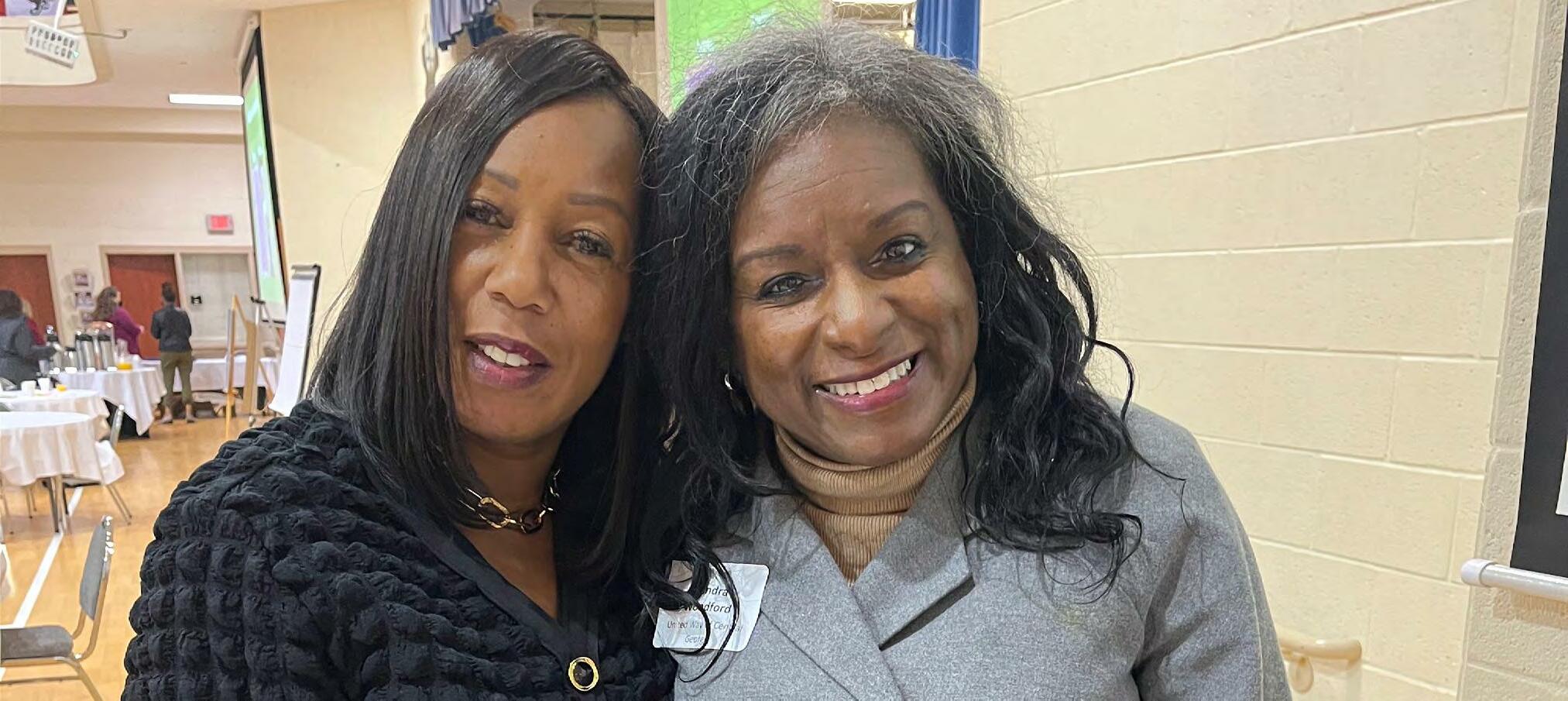
12 minute read
QUESTIONS FOR WORKGROUPS
QUESTIONS FOR THE WORKGROUPS
GOVERNANCE AND FACILITIES
Advertisement
How do we identify a property? Are we looking for what works for now or long term? What are our phases to opening a Center? What are the priorities? How many agencies to begin with? Location? How will clients get to us? Will it be open 24/7? Will there be therapy animals? Where do we want to be? Will there be a substation in the facility? What about security? Do we have metal detectors? How do we balance security versus open & welcoming? Look at other locations/centers Do we need badges? How much space? What type of space? Macon Mall? Presidential Parkway? Empty DFCS space? Second Street Boys & Girls Club Self-help center for clients? What do we want food and beverages to look like? Recreational options? Green spaces? Exercise? Quiet space? Playground? Splash-pad? What recreational facilities might we want to be close to? Where are other potential clients now? Insurance requirements? Maintenance of the building? Cleaning? IT, networking and wifi? Database? Incorporate? 501c3? Lawyers? Board of directors for FJC? Confidentiality agreements? Release of information? Is this non-profit driven versus government driven? How to manage/screen for conflicts of interest? Books-a-Million or Westgate? Do we adopt partner agency policies and procedures or create our own? What are partner agencies agreeing to when they join and locate in OSP? Will partner agencies have a voice in policy/on-going management decisions? How will we resolve conflicts between partner agencies? How to ensure accountability of multiple organizations and agencies under one roof? Active participation in mission? What is the policy/procedure to remove non-compliant agency/personnel? What criteria are important to using a choosing a location? - Area? - Client safety/comfort? - Parking? - Landscaping? - Transportation? - Dedicated bus line? - Bus passes?
OPERATIONS AND SERVICE DELIVERY
What does the flow look like for a survivor coming through the Center? What does the outdoor space look like before coming into the Center? Who is the first point of contact? What are the credentials/ qualifications for providers? More than one receptionist? What is their compensation and training? What does it look like for someone in immediate crisis versus ongoing need? What partners/services are onsite? What is the schedule? Full time? Part-time? Are staff cross-trained to cover intake and navigation? Who do we want in the FJC to provide services? What do volunteers do? What are their responsibilities? How much time passes from when the client walks in and when they begin services? Does staff rotate to prevent burn-out? Do partners get to give feedback on aesthetics, office decor and/or set up? Will we have a shared data base? What does commitment from a partner look like? How is the intake done to not overwhelm client/family? Can partners consolidate assessments and share information? How will we share information between partners? Who will navigate? How much will the next partner know about the client/family? Training for partners to include good customer service, onboarding and ongoing? Who are we calling clients? Customers, clients or something else? Discuss shared language Immediate child-focused advocacy upon intake Will there be therapy animals onsite? Security of building – Do we have a security guard? What do they look like? Will security be carrying a firearm? What if a survivor has a warrant? What will be our language access plan? How do we serve immigrant survivors? Parking – who parks where? Will there be free parking? Do survivors park with easy access to building entrance? How do we designate parking for survivors? Lobby set up, will food be immediately accessible? Immediate comfort? Items for children? Will we have a shared data base? Confidentiality? Someone to communicate expectations & what comes next? Will there be a phone in the intake/triage room? Will there be an electronics charging station? Will there be a bassinet in the space? Will there be someone to help with babies and children? Can someone help fill out the paperwork? Will there be flexibility to accommodate circumstances with our intake services? How do we prioritize needs over check boxes? Will we incorporate artwork? Engage local art community? Rotate artwork? What will be the lighting? Nothing fluorescent. How do we provide childcare?
OPERATIONS AND SERVICE DELIVERY CONTINUED Will we have an air purifier system? How do we implement a childcare center onsite? How do we ensure we meet the physical needs for clients? Male spaces – how do we provide services to male survivors? Will we conduct focus groups with male survivors? How will we ensure accessibility for all survivors? How will we ask survivors what they want and need? How do we handle conflict between FJC partners? What if a client doesn’t want to work with a specific staff member or partner? What if the client is ineligible for services from one of the partner agencies? How do we serve folks who are not survivors? What if a homeless person shows up? How do we handle perpetrators showing up? What about conflict of interest? What does our building security plan include? Does the client move from partner to partner or do partners go to the client? What about EAP for on-site staff? How will we use technology to help make the space fun/happy? Who is going to be at the FJC 24/7? On-call? After hours? Drop-in? Are we going to have walk-ins, appointments or both? How do handle donations of items? Storage? Documentation? Solicitation? Will there be a washer/dryer onsite? What is our disinfecting system? Virtual/remote service options? Virtual courtroom? Child specific services? Animation for helping kids tell their stories? Games that could be helpful What type of ID will clients need to produce? What if they don’t have one? Can we have an MOU with vital records? How do our funding parameters affect this? Can we partner with business and existing work placement programs? Workforce development? Financial empowerment? WFH/virtual opportunities? Have tech onsite if possible Robots to engage kids? Phone email system? Directory/list serve? Creative spaces for clients? Self-care spaces for clients? Musical instruments? How do we meet the needs of disabled survivors or survivors with special needs? Who do we have onsite for assessment? Where can we implement technology to make things easier or more accessible to survivors? Program evaluation to ensure survivor focus (survivor-led audit)? How do we help survivors in neighboring counties? Regional Network? Court – what does it look like for survivors? How do we serve older adults? Who are our older adult providers? How do we ensure the building is full accessible? How do we add partners down the road? Vetting process for partners? What’s the intake system? Who has access to data? Who owns it?
FUNDING AND SUSTAINABILITY
How can we use a SPLOST initiative for funding? 5 year collection? How much can we raise from this? How much interest accumulated? Can we use this? Collaboration on new grants? - Community Foundation? - Peyton Anderson Foundation? - Knight Foundation? - Griffith Foundation? How do we pull these funders in early? What specific initiatives would they fund? How long before we are up and running? What sponsorships benefits could be offered? Is this only open to nonprofits? If not, how do the for-profits fit in and co-locate? How do we get the government funded organizations to allocate part of their budget, especially if they are co-located? What about United Way partnership? Employee contributions? Any possibility of apply for and receiving COVID funding? What can we do to ensure we don’t take from agencies that currently receive this funding? Is it possible to find matching partners? Can we participate in the CFC funding? What companies can we partner with or request grants from IBM, Coca-Cola, Big Brands, Georgia Foundation of Agriculture? Food justice opportunities? Could we partner with GA Farm Bureau & USDA? Could we create a fund at CFCGA in advance? Start raising money now? Could we look at programs we can offer that would bring more grant funding opportunities? Could agencies get letters of support for work related to the FJC? Can we look for funding for places outside of Macon to fund similar goals or services for their residents? Can we get a bill for funding outside of the current funding that doesn’t conflict? E.G. GA Rural Health? Reach out to Macon lobbyist? Using publications/research to obtain funding for grants? Macon will be the first? There is a need for special funding? Capitol Commission budget? Liability waivers? What is planned for location for the future area? Is there a current government building that they own that could meet our needs? What about old progressive academy? Old Mall? Vacant for 3-4 years? Could this or something like this be provided for free? (Less than 10 years old) Could we partner with a construction firm to save on costs for modifications? Need to consider green space, grown culturally appropriate food, nutrition & education support Could we partner with Otis Redding to be the provider of education? How much will board members be expected to donate? Will this be a requirement? Public health journals? Partner with Mercer Community Medicine Department, PhD in Rural Health Dept, Public Health Dept, UGA, Energy? Celebrities in Macon, wealthy past and current residents?
FUNDING AND SUSTAINABILITY CONTINUED How do we ensure that this committee receives all data/ reports needed to help guide funding requests? Look at multi-use entertainment that could bring in funding from private sources (memberships)? How can we support satellite sites? Healthcare GA Foundation? Professional athletes funding rooms/activities for PR & recognition? E.G. Koch Center in Chicago What state level initiatives can we support to gain more financial support? WIOA provided it doesn’t conflict with other organizations? Possible work site & COVID mitigation?
Gael Strack and Pamela Faison

"I am so excited for the opportunity for research that can come out of the Family Justice Center. The data that will come out of this project can improve the lives of so many community members, particularly women.”
DR. ANNE MONTGOMERY, BIOSTATISTICIAN, MERCER UNIVERSITY SCHOOL OF MEDICINE
DATA, RESEARCH, AND EVALUATION
Help Facilitate focus groups Report our findings to local community, school board, city council, local conferences, SETA and lobbyists Progress Reports Demo of Hope Tech Suite Stakeholder interview (PDs, Sheriff’s Department) Literature review (get university help) What will we benchmark? - Hope Level - Stress scale-mental health - What can/should we do for folks in crisis? - What are other centers doing? - What brought you here today? - What other agencies/services have you contacted? - Needs assessment - Poly-victimization
Assessment Tool - Child well-being index - Make sure the tools used are culturally sensitive - Evaluation of services - Satisfaction survey - Evaluate if all segments of your community are being reached - Basic county data (surrounding counties also) - Measure Hope score at intake

COMMUNITY ENGAGEMENT AND OUTREACH
Information box – be smart movement? How do we share accurate information in multiple formats? How do we target specific groups with info? How do we get the word out withing specific networks? Faith? How do we maximize engagement on social media formats? How do we keep engagement? Who will do social media at the center? How do we separate good info from bad info on social media? How do we maintain a good image on social media? Messaging and monitoring will be important. Should we create an app for One Safe Place Macon? Do we partner with schools and colleges? How do we use local celebrities to help spread our message? Can we create ambassadors? What about on-going training for spokes people and staff? How do we use interns from local universities? How do we use in-kind services from local organizations and agencies? How do we use all and different formats of advertising to spread the word? How do we reach people in different ways in different age groups? What are the methods of communication? How do we meet their values in that? How do we fund the role of Public Relations? How do we keep our message consistent and persistent? How do we engage funders? What are the partnerships that we need to foster? What kind of community outreach is necessary for the facility? What levels & types of training are needed? What is everyone’s role? Orientation – who does the orientation for staff? How? How frequently? Who will train partners that is on board with the Center’s values? How do we keep training and engaging partners? How do we get survivors engaged in outreach? How do we create a survivor advisory board? VOICES committee?
“Everyone on the Elizabeth Schorr & Co. team was honored to partner with Crisis Line and Safe House of Central Georgia on the brand development of Georgia’s first Family Justice Center, One Safe Place Macon. We love everything this organization is doing and are humbled at the opportunity to use our skills to support their work in our community. While we’re not trained counselors or lawyers, we can still do our part by using the talents we do have to assist their work. ”
ELIZABETH SCHORR, ELIZABETH SCHORR & CO.
COMMUNITY ENGAGEMENT AND OUTREACH CONTINUED How do we take the fear out of the equation? What is confidentiality clause/assurance? How do we involve Storytellers Macon? How do we humanize it? Face of the movement? How do we engage voices of childhood survivors? What education is there for children on dv/trauma? How do we share a consistent message that violence/abuse is wrong? How do we bring back messages/branding to “old school”? How do we not recreate the wheel? How do we address self-care in our staff? How do we cross train? What is the difference between orientation and onboarding? Do we have a tagline? What is the brand? How are we going to get a scared community to buy into this? Go where they are? How do we assure the message is getting to the right people? How do we create an “elevator speech”? How do we engage mental health providers into this work? How do we engage the school community? Welcome back to school events? How do we host community events? Can survivors speak at the event? Can we pull health departments into conversation/events? What already exists that we can be part of? How do we educate first responders on signs and symptoms of family violence and strangulation? How do we assure process improvement is part of the plan? How do we get partners to share information about OSPM at community events? How do we engage Healthcare providers in screening and sharing information? How do we launch FJC Lunch/Learn? Coffee/chat? How do we engage faith leaders and educate them on family violence?
Dr. Denise McCain and Sundra Woodford







